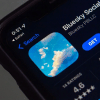Is it necessary to take social media breaks during exam season?

In the frenzy of exam season, students often find themselves caught in a whirlwind of textbooks, notes, and caffeine-fueled all-nighters. The pressure to excel academically can be overwhelming, leaving little room for relaxation or de-stressing. Amidst the chaos, many decide to take a break from all sorts of social media platforms. However, is that the right way to go about things?
In today's digital age, social media platforms have become ubiquitous, offering constant updates, notifications, and all sorts of distractions. Thus, social media is widely considered to be a significant source of procrastination, particularly during periods which beg intense focus and concentration.
Taking regular breaks from social media during exam season can be a wise move. Contrary to popular belief, stepping away from social media doesn't mean you're missing out; rather, it allows you to reclaim your time, attention, and sanity.
The incessant scrolling, clicking, liking and overall doom scrolling is known to fragment the attention span, impair memory retention, and even hinder critical thinking skills. By disconnecting from social media, you can create an environment conducive for deep, focused study, further enhancing your ability to absorb and process large bits of information.
Thus, for most cases, social media breaks offer a much-needed opportunity for mental rejuvenation.
Of course, integrating social media breaks into one's study routine requires discipline and intent. It's not enough to simply deactivate notifications or set time limits; students must actively prioritise their mental well-being and commit to creating boundaries between their academic and social lives.
However, adapting a plan to turn yourself away from social media only during exam season can have its own challenges. The habitual adjustment to a period without scrolling and exploring take up excessive energy when done deliberately.
For many people, social media is a coping mechanism. They may suffer from increased stress, anxiety and burnout as the unending pressure to bring stark results in the academic scene can be a far heavier burden than one may conceive it to be.
Again, there are a number of students who have improvised ahead in this digitally oriented lifestyle; they have balanced their social media presence and opportunity to focus on themselves, academically or not. They may not necessarily need more social media breaks, so to force additional breaks on them as well as peer pressuring them into a generalised adjustment may be damaging.
In a society that glorifies hustle culture and perpetual productivity, it is important that we remember what makes our own machines run well rather than follow a general manual to higher efficiency. Taking a break from social media, or the inability to do so, are not signs of weakness or laziness.

 For all latest news, follow The Daily Star's Google News channel.
For all latest news, follow The Daily Star's Google News channel. 









Comments